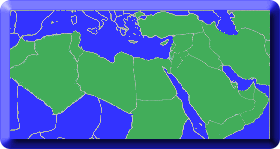
Topics in Middle Eastern and North African Economies
Document Type
Article
Publication Date
9-1-2015
Journal Title
Topics in Middle Eastern and North African Economies
Volume
17
Publisher
Middle East Economic Association and Loyola University Chicago
Abstract
For more than ten years the so-called Global War on Terrorism (GWOT) has been shaping not only national security strategies, but also influenced the definition of the enemy being fought as well as the nature of and boundaries between tactics used in this war. While the discussion about anti-terror strategies and tactics on the political level is ongoing, (empirical) research on the efficiency and effectiveness of these measures is still limited. In our article, we examine the relative impact two counter-terrorism approaches – killing and capturing – have on several measures of effectiveness. Scrutinizing data from 2001-2011 in numerous specifications, we empirically test to what extent these tactics may have different effects on different aspects of terrorism. The primary finding of our analysis is that both killing and capturing have components that have significant positive effects, but that these effects vary based on the specifics of who states target as well as the terrorists’ own targeting strategies. The most interesting specific findings are that drone strikes seem counter-productive for counterterrorism and that renditions seem effective, but that traditional policing through enhanced defenses has the largest effects, which are both positive and negative depending on where one lives.
Identifier
2334-282X
ISSN
2334-282X
Recommended Citation
Lehrke, Jesse Paul and Schomaker, Rahel, "War-Fighting or Enhanced Policing?: The Effectiveness of Kill-Capture Tools and Tactics in the Post-9/11 Era". Topics in Middle Eastern and North African Economies, electronic journal, 17, Middle East Economic Association and Loyola University Chicago, 2015, http://www.luc.edu/orgs/meea/
Creative Commons License

This work is licensed under a Creative Commons Attribution-Noncommercial-No Derivative Works 3.0 License.
Copyright Statement
© 2015 the authors



Comments
Presentation of the articles in the Topics in Middle Eastern and North African Economies was made possible by a limited license granted to Loyola University Chicago and Middle East Economics Association from the authors who have retained all copyrights in the articles. http://www.luc.edu/orgs/meea/volume17/meea17.htm